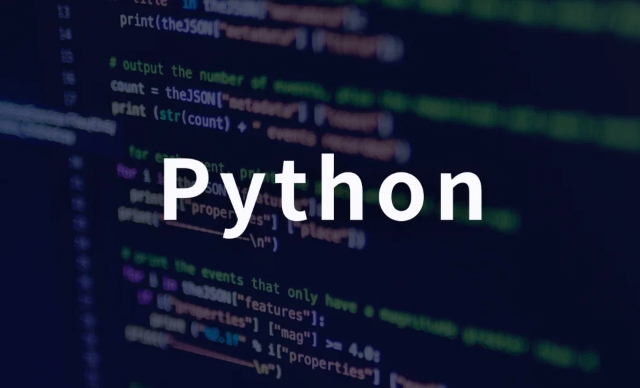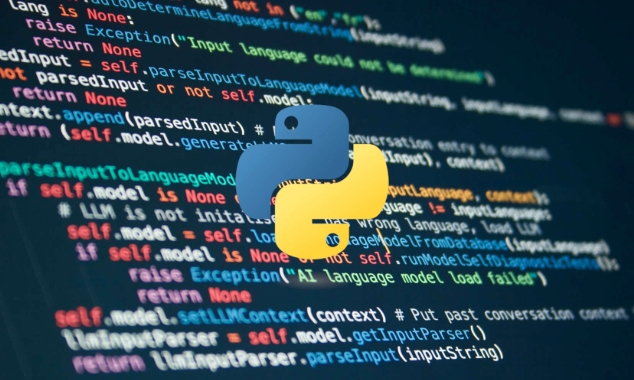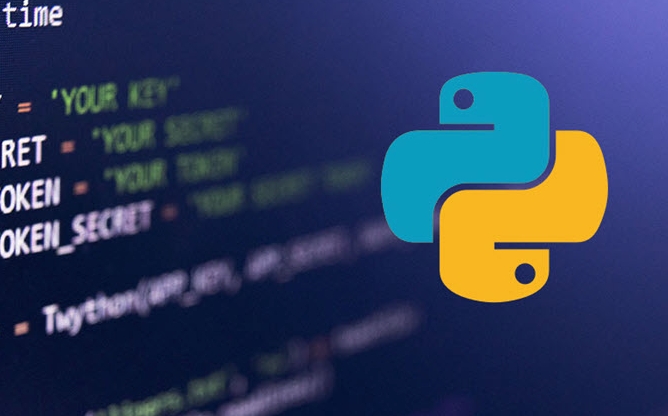orjson has better performance than json and is suitable for big data processing. orjson is a third-party library written in Rust. It supports more data types by default. It is faster serialization/deserialization, especially suitable for performance-sensitive scenarios such as Web API and log processing. json is a standard library that does not require installation and is suitable for projects with simple requirements and high compatibility requirements. When using it, please note: orjson output is bytes and needs to be manually decoded, and does not support custom encoders, and the input must be bytes type.

Python's orjson and standard library's json are both modules used to process JSON data, but they have some key differences in performance, functionality and usage scenarios. If you care about the speed of data serialization/deserialization or memory usage, orjson will be a better choice.

orjson is faster and more suitable for performance-sensitive scenarios
orjson is a third-party library that focuses on high performance. Compared to the built-in json module, orjson is usually much faster in serialization (dumps) and deserialization (loads) operations, especially when processing large amounts of data.
For example, you have a list of thousands of records that need to be frequently converted into JSON strings for transmission or saving. Using orjson.dumps() may be several times faster than json.dumps() . This is because orjson is written in Rust, the underlying optimization is better, and it supports more data types by default (such as dataclass, datetime, etc.) and does not require additional conversions.

json is more general and suitable for simple needs
Although the performance of the json module in the Python standard library is not as good as orjson , its biggest advantage is that it is "out of the box" - no additional dependencies are required, and all Python environments come with it. If you only process small amounts of JSON data occasionally, or the project cannot introduce third-party libraries, then json is enough.
In addition, json 's API design is relatively intuitive, has low learning cost, and is friendly to novices. for example:

import json
data = {"name": "Alice", "age": 30}
json_str = json.dumps(data)This writing is common in various tutorials and projects.
Use suggestions: Select modules based on the scene
- If you are developing services with high performance requirements (such as Web API, log processing, data analysis middleware, etc.), you can consider changing to
orjson. - If you are writing scripts, tool applets, or want to ensure maximum compatibility, then continue to use
json. - If you are already using frameworks like FastAPI or Starlette, they use
orjsoninternally to improve response speed by default.
What should be noted is:
-
orjsondoes not support custom JSON encoder (likejson.dumps(encoder=...)) - The string it returns is of type
bytes, notstr, and sometimes it needs to manually decode it
Small details are easy to ignore
For example, when you are making HTTP requests, if you use requests to send the result of orjson.dumps(data) , remember to add .decode("utf-8") , otherwise an error may occur. Or pass it directly to modern clients such as httpx or aiohttp , which supports bytes better.
For example, although orjson.loads() can also parse ordinary JSON strings, if the input is of type str instead of bytes , it will report an error. This is different from json.loads() , so you need to pay attention to the consistency of the input format.
Basically that's it.
The above is the detailed content of Python orjson vs json. For more information, please follow other related articles on the PHP Chinese website!

Hot AI Tools

Undress AI Tool
Undress images for free

Undresser.AI Undress
AI-powered app for creating realistic nude photos

AI Clothes Remover
Online AI tool for removing clothes from photos.

Clothoff.io
AI clothes remover

Video Face Swap
Swap faces in any video effortlessly with our completely free AI face swap tool!

Hot Article

Hot Tools

Notepad++7.3.1
Easy-to-use and free code editor

SublimeText3 Chinese version
Chinese version, very easy to use

Zend Studio 13.0.1
Powerful PHP integrated development environment

Dreamweaver CS6
Visual web development tools

SublimeText3 Mac version
God-level code editing software (SublimeText3)
 Performance optimization tips for converting PHP arrays to JSON
May 04, 2024 pm 06:15 PM
Performance optimization tips for converting PHP arrays to JSON
May 04, 2024 pm 06:15 PM
Performance optimization methods for converting PHP arrays to JSON include: using JSON extensions and the json_encode() function; adding the JSON_UNESCAPED_UNICODE option to avoid character escaping; using buffers to improve loop encoding performance; caching JSON encoding results; and considering using a third-party JSON encoding library.
 How to save JSON data to database in Golang?
Jun 06, 2024 am 11:24 AM
How to save JSON data to database in Golang?
Jun 06, 2024 am 11:24 AM
JSON data can be saved into a MySQL database by using the gjson library or the json.Unmarshal function. The gjson library provides convenience methods to parse JSON fields, and the json.Unmarshal function requires a target type pointer to unmarshal JSON data. Both methods require preparing SQL statements and performing insert operations to persist the data into the database.
 How do annotations in the Jackson library control JSON serialization and deserialization?
May 06, 2024 pm 10:09 PM
How do annotations in the Jackson library control JSON serialization and deserialization?
May 06, 2024 pm 10:09 PM
Annotations in the Jackson library control JSON serialization and deserialization: Serialization: @JsonIgnore: Ignore the property @JsonProperty: Specify the name @JsonGetter: Use the get method @JsonSetter: Use the set method Deserialization: @JsonIgnoreProperties: Ignore the property @ JsonProperty: Specify name @JsonCreator: Use constructor @JsonDeserialize: Custom logic
 How to use PHP functions to process JSON data?
May 04, 2024 pm 03:21 PM
How to use PHP functions to process JSON data?
May 04, 2024 pm 03:21 PM
PHP provides the following functions to process JSON data: Parse JSON data: Use json_decode() to convert a JSON string into a PHP array. Create JSON data: Use json_encode() to convert a PHP array or object into a JSON string. Get specific values ??of JSON data: Use PHP array functions to access specific values, such as key-value pairs or array elements.
 Quick tips for converting PHP arrays to JSON
May 03, 2024 pm 06:33 PM
Quick tips for converting PHP arrays to JSON
May 03, 2024 pm 06:33 PM
PHP arrays can be converted to JSON strings through the json_encode() function (for example: $json=json_encode($array);), and conversely, the json_decode() function can be used to convert from JSON to arrays ($array=json_decode($json);) . Other tips include avoiding deep conversions, specifying custom options, and using third-party libraries.
 Conquer the pinnacle of Java JSON processing: parse and create complex data
Mar 09, 2024 am 09:13 AM
Conquer the pinnacle of Java JSON processing: parse and create complex data
Mar 09, 2024 am 09:13 AM
Parsing JSON data Parsing JSON data is a critical step in processing complex data. In Java, we can use the following methods: Use the Gson library: Gson is a widely used jsON parsing library that provides a concise and efficient api, as shown below: Gsongson=newGson();JsonObjectjsonObject=gson.fromJson(jsonString ,JsonObject.class); Using the Jackson library: Jackson is another popular JSON processing library that supports rich functionality and conversion to other formats (such as XML), as shown below: ObjectMappe
 Is There an RSS Alternative Based on JSON?
Apr 10, 2025 am 09:31 AM
Is There an RSS Alternative Based on JSON?
Apr 10, 2025 am 09:31 AM
JSONFeed is a JSON-based RSS alternative that has its advantages simplicity and ease of use. 1) JSONFeed uses JSON format, which is easy to generate and parse. 2) It supports dynamic generation and is suitable for modern web development. 3) Using JSONFeed can improve content management efficiency and user experience.
 JSON vs. XML: Why RSS Chose XML
May 05, 2025 am 12:01 AM
JSON vs. XML: Why RSS Chose XML
May 05, 2025 am 12:01 AM
RSS chose XML instead of JSON because: 1) XML's structure and verification capabilities are better than JSON, which is suitable for the needs of RSS complex data structures; 2) XML was supported extensively at that time; 3) Early versions of RSS were based on XML and have become a standard.






